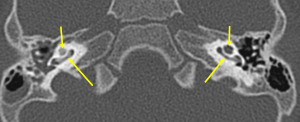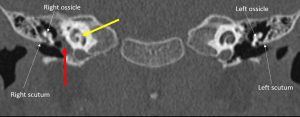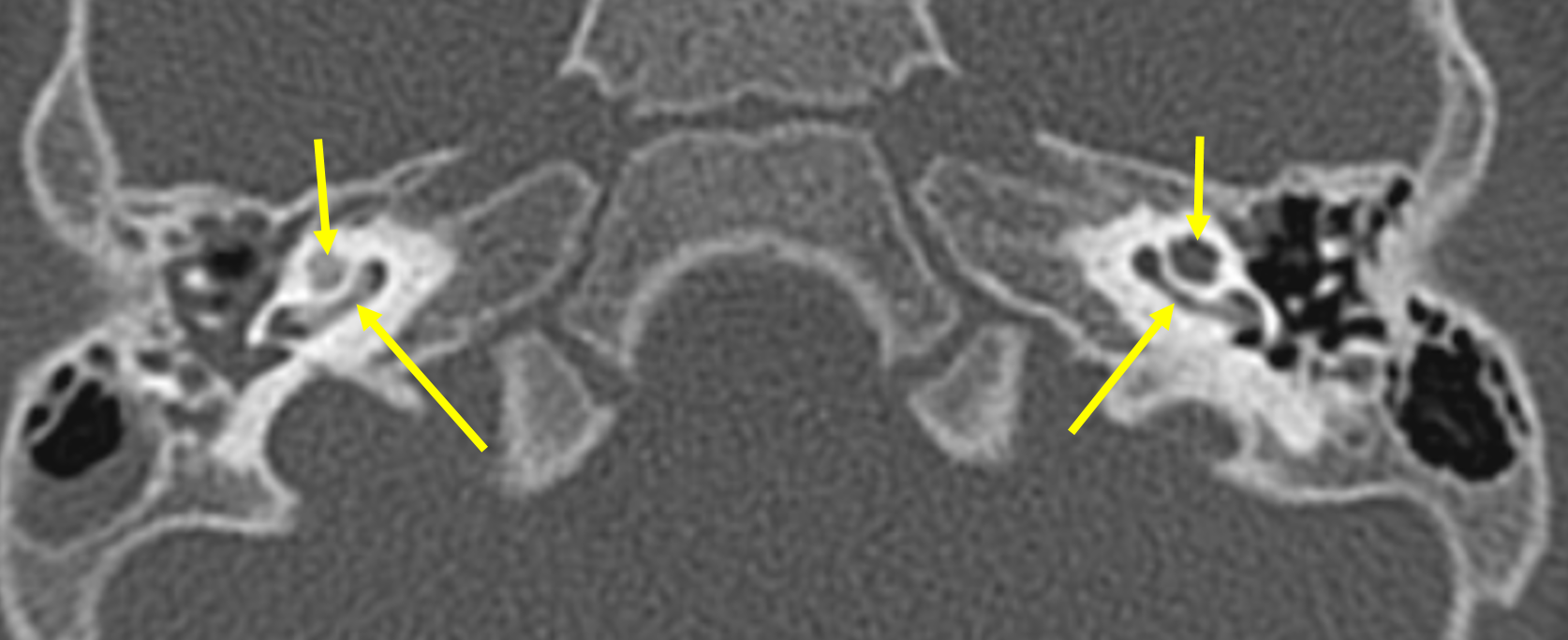Clinical:
- A 2 years old boy
- History of recent prolong fever for 6 weeks with signs of meningism. Admitted to hospital and treated as viral fever.
- Parent noticed unresponsive to call for the past one month.
- ENT examination normal.
- Hearing test noted profound bilateral hearing loss.



CT findings:
- There is ossification/increased density involving the membranous labyrinths (yellow arrows)
- Bilateral involvement but more severe on the right side
- There is soft tissue density within the right middle ear (red arrow) with extension into the mastoid air cells. There is no bone erosion.
- The ossicles are normal in appearance.
Diagnosis: Bilateral labyrinthitis ossificans and right chronic otitis media
Discussion (labyrinthitis ossificans)
- Also known as labyrinthine ossification
- Represent pathological ossification of the membranous labyrinth
- Usually presented with profound sensorineural hearing loss
- May have vertigo and/or dizziness
- Most commonly the end result of otomastoiditis or meningitis
- Other causes include trauma or surgery, autoimmune ear disease and sickle cell disease
- Mild disease if hazy increase in density seen within fluid spaces of the membranous labyrinth
- Moderate disease if focal areas of bony encroachment on fluid spaces of the membranous labyrinth seen
- Severe disease if membranous labyrinth completely obliterated by bone replacing the fluid spaces
- This condition may complicate or preclude cochlear implantation
- In this case soft tissue density of right middle ear is unlikely to be due to cholesteatoma due to no bone erosion and no abnormality of ossicles seen.

Recent Comments